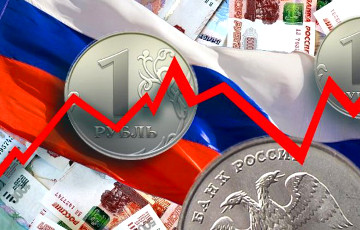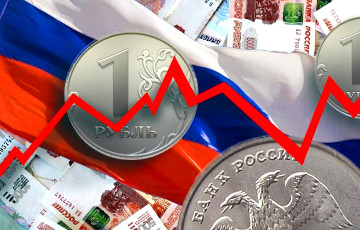Russian Federation Urged To Urgently Raise Taxes To Save The Budget
Russian Federation Urged To Urgently Raise Taxes To Save The Budget

Russian Federation Urged To Urgently Raise Taxes To Save The Budget

The Russian treasury has been hit by the reduction of oil and gas revenues and the deterioration of the economy.
The Russian authorities need to look for additional revenues for the treasury, which has been hit by the reduction of oil and gas revenues and the worsening situation in the economy. The head of the Federation Council Committee on Budget and Financial Markets Anatoly Artamonov said this on Wednesday, The Moscow Times reports (link to article in Russian).
The senator said measures need to be taken "urgently" as "assessments of economic indicators" have become "more pessimistic" and commodity revenues are declining.
"We need to use all available resources to increase the revenue base," Artamonov urged. In particular, he said, it is necessary to consider the abolition of some tax benefits, the amount of which has now reached one third of the federal budget.
In addition, Artamonov continued, the level of shadow employment in Russia remains high, when individuals avoid paying income tax and contributions to social funds. We are talking, in particular, about salaries "in envelopes", the volume of which was previously estimated by the authorities at 10 trillion rubles a year.
Also, "our persistent reluctance to deal with privatization issues is perplexing," the senator said, adding that all the measures he listed are "reserves to replenish the budget" (quoted by Interfax).
Money is increasingly needed by the federal treasury, which spends every third ruble on the war - a record share since the Soviet Union. According to the Ministry of Finance, oil and gas revenues fell by 17% in the first half of this year, while total revenues grew by only 3%, meaning that in real terms (adjusted for inflation) they began to shrink. At the same time, expenditures jumped by 20%. As a result, in six months the budget has a "hole" of 3.7 trillion rubles - 6 times more than in the same period a year ago.
Reserves for patching budget "holes" are nearing exhaustion: the liquid assets of the National Welfare Fund, which before the war reached $120 billion, by July 1, 2025 reduced to $52.6 billion, that is, almost 2.5 times. If oil prices remain low, this reserve will be completely used up as early as next year, economists at the Russian Academy of National Economy and Public Administration warned.
...
Woah, 1/3rd of the budget is a lot.
They shifted their entire economy onto war footing. That means they're in it for the long haul because they've basically gambled the future of the country on it.
Even when the war is over do you want to transition back to a peacetime economy or take further gains?
Yeah, there is no real way out for Putin. If he stops this war, his economy is in ruins. Even if sanctions are lifted, the world has gotten new suppliers for russian goods and even for russian oil & gas. Germany e.g. is rapidly changing its energy economy and won't buy as much gas as before. Millions of men will come back from the war, heavily traumatized and no real job prospects.
But even if Ukraine falls, he wins and Russia occupies the country: There will be a mass scale guerrilla warfare in a ruined country where many people fled. Sanctions will continue and what is left of Ukraine won't restore the russian economy.
And the war might still go on for a while, but it is totally unsustainable in the long run.
In some EU countries that is the correspondent 5% GDP NATO spending goal.
E.g. if Germany would spend 5% of GDP on military, that would be about half of the current federal budget, so it would become a third of the federal budget if other spending isn't slashed.
3.5% of it are for military spending as currently measured by NATO(right now Germany is at 2% of GDP). The other 1.5% are meant for defence infrastructure, resilience and civil prepardness. You could make a good case of say wind trubines being defence related, as they make German infrastructure more resilient to events similar to Russia turning of gas supply to Germany.
which ones? germany has government spending at 48% of gdp https://en.wikipedia.org/wiki/List_of_countries_by_government_spending_as_percentage_of_GDP so 5% of gdp for defense will be closer to 1/10 of all government spending
going by 2024 numbers, russians putting third of government spending to defence would be closer to 13% gdp